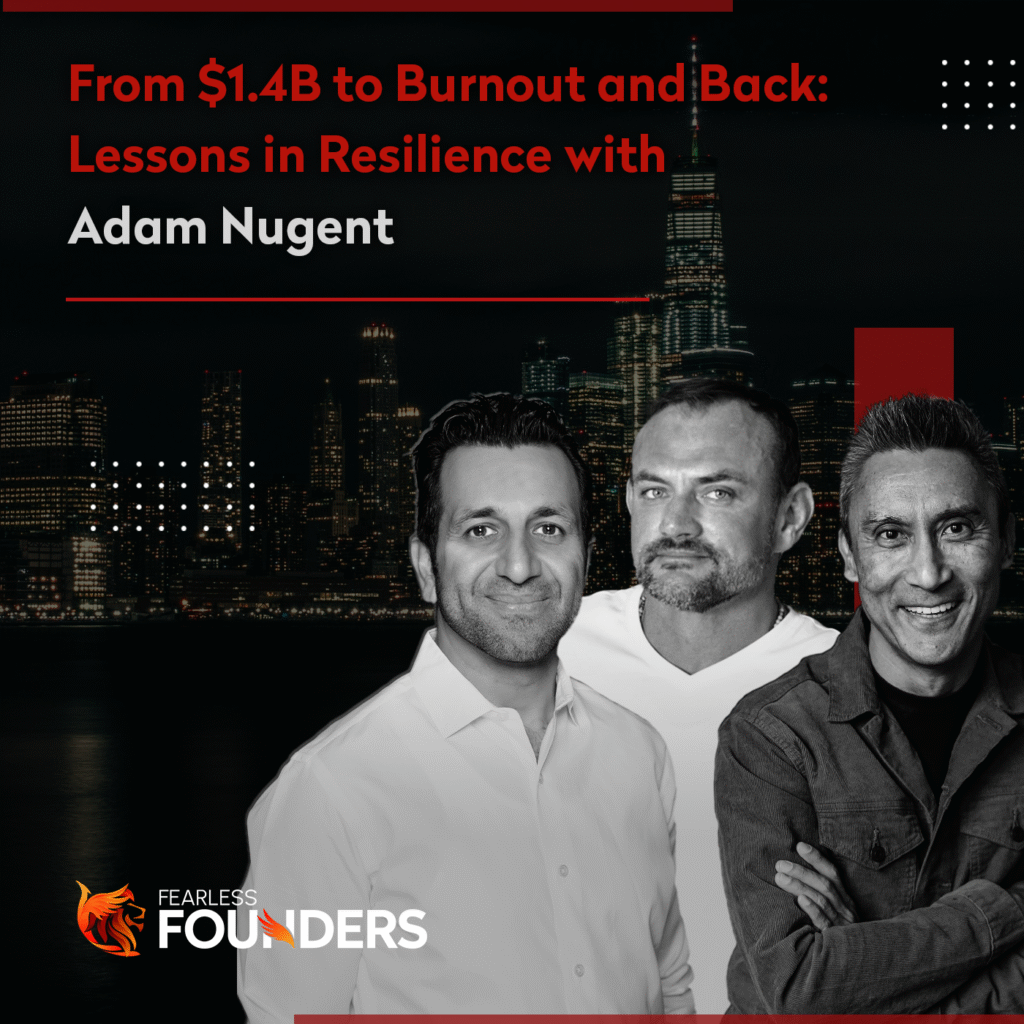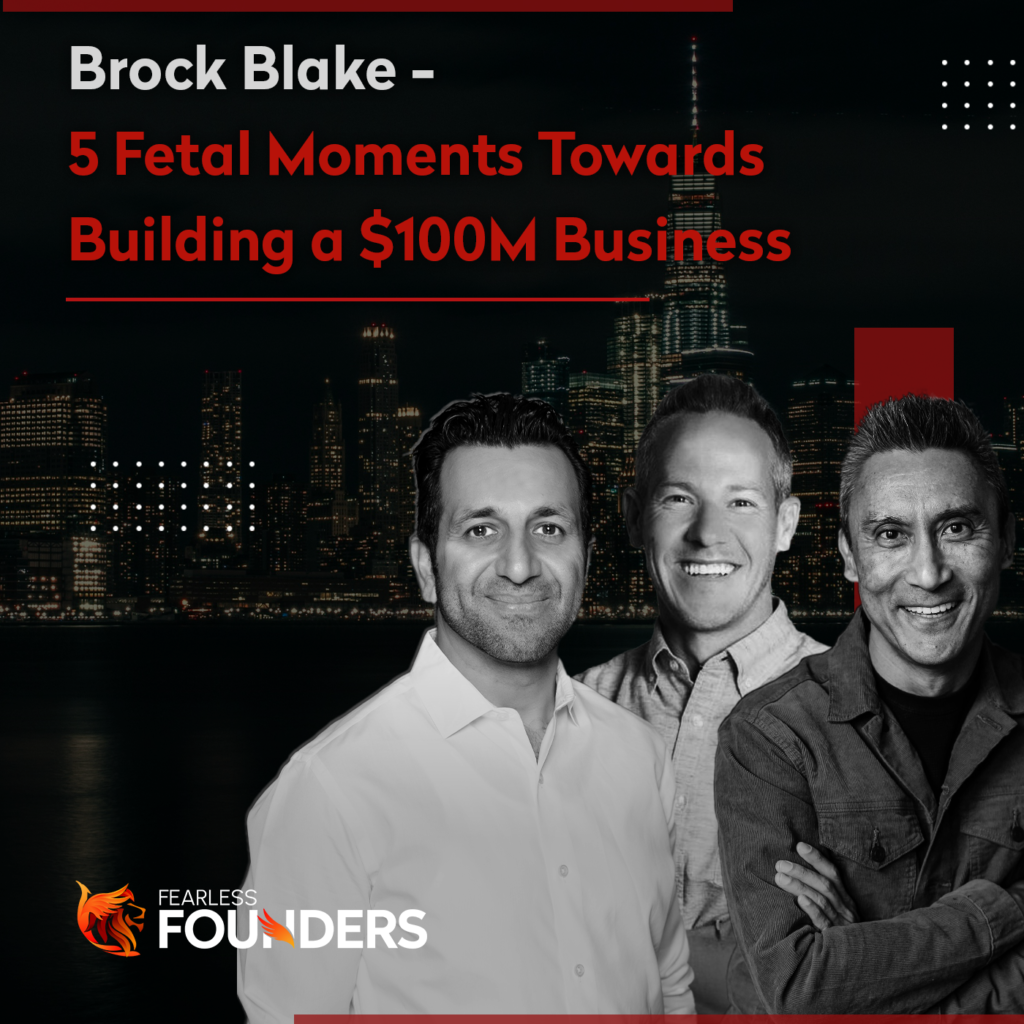Navigating the Founder’s Journey: Lessons from Cleve Adams on Fearless Founders
The path of a startup founder is filled with both triumphs and trials. Cleve Adams, a serial entrepreneur and pioneer in the cybersecurity space, recently shared his insights on the Fearless Founders podcast hosted by Ike and Benoy. In this article, we’ll explore key takeaways from Cleve’s discussion, offering real-life examples to help first-time founders and aspiring entrepreneurs navigate the complex world of startups.
1. Overcoming Founder Syndrome: Accepting Help When It’s Needed
Founder Syndrome is a common pitfall where entrepreneurs struggle to accept external help, often believing they are best suited to lead their company alone. Cleve Adams highlighted how this mindset can hinder growth and limit a company’s potential.
- Real-Life Example: A tech startup founder resisted bringing in a seasoned CEO despite investor pressure. The company struggled with scaling, and only after the founder reluctantly agreed to step aside did the business achieve significant growth under new leadership.
- Key Takeaways:
- Recognize limitations: Understand when your skills may not align with the company’s current needs.
- Leverage external expertise: Bringing in experienced leaders can provide fresh perspectives and drive growth.
- Investor relationships: Trust in the judgment of investors who have a vested interest in the company’s success.
2. Pioneering in Cybersecurity: The Birth of Websense
Cleve’s journey began in 1996 with the founding of Websense, one of the first cybersecurity companies. The company’s innovative approach to content filtering, particularly in blocking inappropriate content, set the stage for its success.
- Real-Life Example: Websense partnered with major players like Cisco and Check Point, positioning itself as a leader in a nascent industry. The company’s ability to anticipate the need for internet content filtering helped it grow into a billion-dollar business.
- Key Takeaways:
- Identify market gaps: Look for opportunities in emerging industries where competition is limited.
- Innovate boldly: Don’t be afraid to pioneer new products or services that meet unaddressed needs.
- Strategic partnerships: Align with industry leaders to enhance credibility and reach.
3. The Importance of a Strong Sales and Marketing Strategy
One of Cleve’s most crucial points was the need for a robust sales and marketing strategy. Many tech founders focus heavily on product development while neglecting the business side, which can be detrimental to growth.
- Real-Life Example: A SaaS company had an excellent product but struggled with poor sales. After hiring a dedicated sales team and investing in targeted marketing, the company saw a 300% increase in revenue within a year.
- Key Takeaways:
- Balance tech and business: Ensure that sales and marketing efforts are as strong as product development.
- Lead generation: Develop a consistent system for generating leads to keep the sales pipeline full.
- Sales team training: Invest in training to ensure your sales team can effectively close deals.
4. Raising Capital and Managing Investor Relationships
Raising capital is one of the most challenging aspects of being a founder. Cleve emphasized the importance of preparation, understanding your business inside out, and maintaining open communication with investors.
- Real-Life Example: A startup founder secured funding after months of rejections by meticulously refining his pitch, focusing on how investors would see a return on their investment. Regular updates kept investors informed and engaged, building trust throughout the process.
- Key Takeaways:
- Prepare thoroughly: Know every detail of your business and be able to articulate your vision clearly.
- Investor communication: Regularly update investors, being transparent about both successes and challenges.
- Persistence: Don’t get discouraged by initial rejections; success often comes after multiple attempts.
5. Embracing the Dual Nature of Fearlessness and Fear
The name “Fearless Founders” reflects the dual nature of entrepreneurship: the courage to start something new and the inevitable fears that come with it. Cleve stressed the importance of pushing through these fears to achieve success.
- Real-Life Example: A founder was paralyzed by the fear of failure as her startup’s runway shortened. By seeking mentorship and external guidance, she regained confidence, secured additional funding, and successfully scaled her business.
- Key Takeaways:
- Acknowledge fear: Recognize that fear is a natural part of the entrepreneurial journey.
- Seek support: Don’t hesitate to ask for help from mentors, advisors, or peers.
- Stay focused on the vision: Keep your long-term goals in mind to push through short-term challenges.
Cleve Adams’ insights offer invaluable lessons for founders at any stage of their journey. By overcoming founder syndrome, pioneering in new markets, emphasizing sales and marketing, managing investor relationships, and embracing the balance between fearlessness and fear, entrepreneurs can navigate the complexities of startup life. These strategies, combined with real-life examples, provide a roadmap for turning a bold vision into a successful venture. Remember, success is often about persistence, adaptability, and the willingness to seek and accept help when needed.

Adam opens up about the collapse of his business, the emotional aftermath, and his journey through rock bottom toward personal and professional reinvention. From the pitfalls of chasing external validation to the power of rebuilding your identity, this conversation is packed with hard-won wisdom for every entrepreneur navigating risk, growth, and purpose.

In Episode 29 of Fearless Founders, hosts Benoy Tamang and Ike Kavas welcomed Abby Martin, HR expert and President of Amplēo HR, for a deep dive into what truly drives scalable, people-first growth in startups.

In this episode 28 of Fearless Founders, Brock Blake, co-founder and CEO of Lendio, shares the unfiltered reality behind building a $100M business. He walks us through five pivotal “fetal position” moments—those gut-wrenching lows that tested his resolve, leadership, and belief in the mission.

In Episode 27 of Fearless Founders, we sit down with Fengmin Gong, a pioneering technologist and four-time exited founder, known for his instrumental roles in building companies like Palo Alto Networks and CipherOptics.

In this episode of Fearless Founders, Jeremy Glauser, a three-time exit entrepreneur, shares his journey of building and scaling multiple businesses. He opens up about the challenges of entrepreneurship, from navigating market timing to the emotional toll of setbacks.

In Episode 25 of Fearless Founders, we sit down with Tom Turner, a visionary leader in cybersecurity and a seasoned entrepreneur with multiple successful exits. With a career spanning decades in the tech industry, Tom shares his insights on building and scaling startups, aligning sales and marketing for growth, and the critical role of leadership in fast-moving industries.

In Episode 24 of Fearless Founders, Peter Harris, Managing Director of University Growth Fund, shares his remarkable journey from real estate and micro-franchising in Ghana to leading a venture fund in Utah. With years of experience evaluating startups and raising capital, Peter offers invaluable insights into when to raise funds, navigating investor relationships, and building successful businesses.

In this episode 23 of Fearless Founders, our guest, Clint Betts is a key figure in the startup and tech community, best known for founding Silicon Slopes and Kokomo. He has played a major role in fostering entrepreneurship, connecting leaders, and shaping Utah’s tech landscape.

In this episode 22 of Fearless Founders, Jeremy Docken is a seasoned entrepreneur and founder of Calderas, a healthcare technology company. With a background in accounting and forensic finance at Arthur Andersen and KPMG, he transitioned into the tech and pharmaceutical space, building innovative solutions.

In Episode 21 of Fearless Founders, Brandon Bliss shares his incredible journey from finance graduate to achieving five successful company exits. With over 20 years of experience, he unpacks strategies for elevating business growth, the value of mentorship, and the power of aligning your purpose with your business venture. Learn more how his eye-opening life story and practical lessons can inspire you to create a lasting impact on your team and unlock growth for everyone. Don’t miss this episode packed with actionable takeaways!